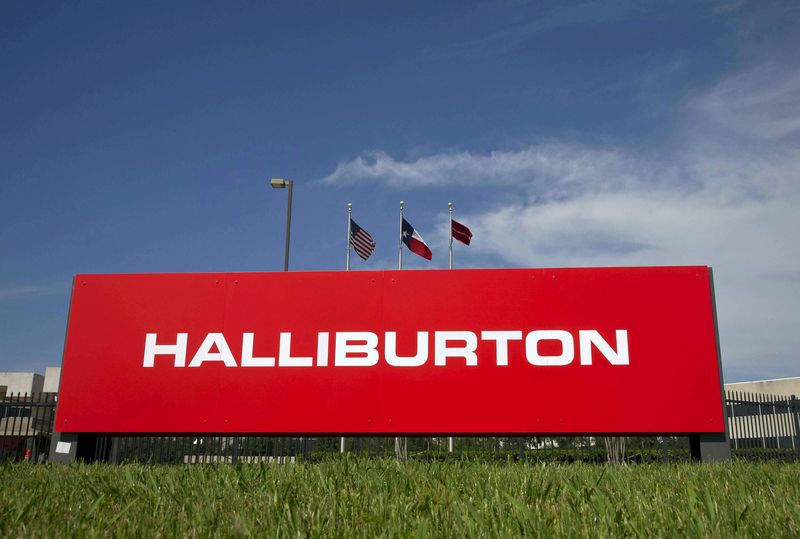By Liz Hampton and Arunima Kumar
(Reuters) - Oilfield firm Halliburton (NYSE:HAL) Co on Tuesday reported a first-quarter profit that topped Wall Street estimates as a tight services and equipment market has helped drive demand and improve its pricing.
Global oil futures are currently trading above $80 a barrel, down about 20% from a year ago but still higher than the price most companies need to drill profitably. Markets have been choppy in the past month, falling to around $70 a barrel amid concerns of a banking crisis before rebounding on a surprise cut by OPEC+.
"Our customers are clearly motivated to produce more oil and gas and service capacity is tight," Chief Executive Jeff Miller said in a statement. Halliburton is the largest provider of U.S. hydraulic fracturing equipment.
Revenue in its North America business was up 44% to $2.8 billion, while its international revenue increased by 23% to $2.9 billion.
Halliburton said it had moved three hydraulic fracturing fleets from gas to oil basins amid weaker prices. It expects natural gas markets, which fell 50% at the start of the year, to rebound as new LNG export facilities come online over the next two years.
It reported an operating margin of 17.2%, an increase of 530 basis points.
Halliburton's free cash flow (FCF) of negative $105 million for the quarter came in under analysts' expectations, which the company attributed to seasonal investments in working capital. It anticipates free cash flow generation to be back-loaded to the second half of the year.
"FCF slightly below our estimate, but not unreasonable given seasonality," wrote analysts for investment firm TD Cowen, which had anticipated free cash flow of $38 million.
Shares were down 1.2% to $34.06 in early trading, while global oil prices were off about 2% at $81 a barrel.

Going forward, Halliburton anticipates year-on-year international growth in the high teens, and North America growth to exceed 15%.
Houston-based Halliburton said net income attributable to the company stood at $651 million, or 72 cents per share, for the three months ended March 31, beating analysts' forecast for earnings of 67 cents per share, according to data from Refinitiv. That's up from earnings of $263 million, or 29 cents per share, a year earlier.